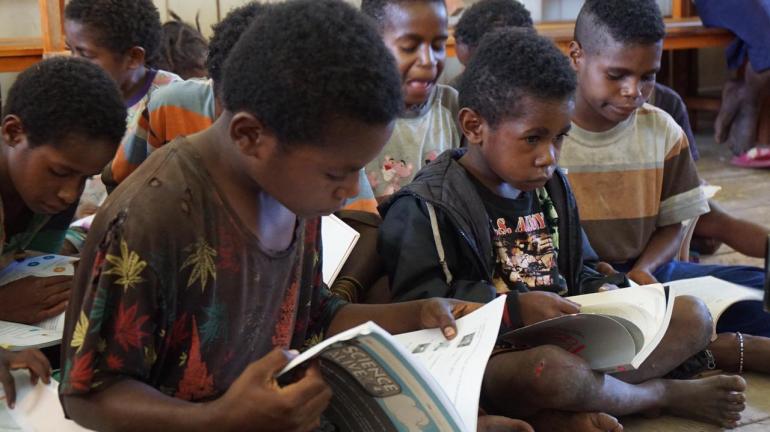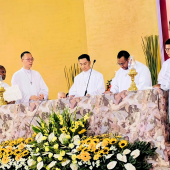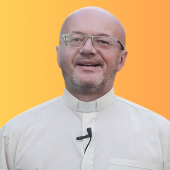Christian literacy activist harbinger of ‘good news’ for poor Papuan communities

Neas Wanimbo is a 26-year-old Christian literacy activist in the hinterlands of Papua in Indonesia who became the harbinger of “good news" in poor communities.
He is known as Neas, at least to those who have heard of him and of his contribution to informal education in the country.
Neas has been educating children in the remote areas of Papua, even establishing libraries and holding reading and writing classes in hinterland villages.
The young man wants to change the image of Papua, which has become synonymous to resistance movements, poverty, and dangerous areas in Indonesia.
“I believe that with education, the quality of human resources can be improved and enhanced," he said. "Education is one of the keys to success,” added Neas.
Neas is the founder of the Hano Wene Indonesia Foundation. "Hano Wene" means "good news” in the Papuan language.
The foundation, which is the second school for interior Papuans, both children and adults, has already established 11 libraries and learning centers across three provinces.
It has reached 10 districts in Papua and Maluku and has served more than 12,000 people.
Neas is an alumnus of Tanri Abeng University in Jakarta where he studied Informatics Engineering.
The young Papuan was able to enter college through a scholarship from PT. State Electricity Company.
He left his poor family and hometown to study in Jayapura Regency City. “Since childhood, I have dreamed of establishing a library in Papua," he said.
He said schools in Papua usually have only one teacher who guides pupils from from Grade 1 to 6. Books are non-existent, he said.
"Because there were no teachers and no books, we just go to school to play,” Neas recalled.
With the help of friends in Jakarta, Neas collected books that he sent back home when he was still in college.
"Now there is a library where children of Papua can go every day," he said.
After graduating from college, Neas returned to Papua and continued his work in promoting reading among children while working as as freelance technician.
He also discovered that most Papuan adults cannot read and write. "We were encouraged to teach them," said Neas.
“Books are windows to see the world," he said, adding that enables local people to expand their horizon and expose themselves to other perspectives of life.
“I hope that with the books available, children will be motivated to read," said Neas.
"With the presence of books, I believe that children and adults alike will be encouraged to learn to read and write, especially in the absence of technology and smart phone,” added the young man.
These days, Neas teaches both children and adults to read and write with the help of 20 volunteers in his 11 libraries. Each library has two to three volunteers who accompany the children.
The volunteers are teachers, pastors, and young people who willingly offered themselves to go to forest areas and the hinterlands to serve.
He is grateful for the support of various groups, including the Church, in his project.
He said priests and pastors take part in the daily activities of the library. "Many times, we use their facilities for teaching," he said.
The project continues to encounter challenges, including how to provide context to the books so that learners understand what they are reading.
"We have to accompany the children when they read the books," said Neas.
And because the project is dependent on volunteers, the schedule often has to be adjusted.
The distribution of books is also a challenge because many areas in the region are still difficult to reach.
Despite the challenges, the persistence of everyone paid off. To date, more than 20,000 books have been distributed to several areas in the region.
“Every day, about 15 children come to every library to read and study," said Neas.
He was also happy to report that about 80 percent of the population in communities where there is a learning center can now read and write. - Emiliana Saptaningsih / RVA News
Radio Veritas Asia (RVA), a media platform of the Catholic Church, aims to share Christ. RVA started in 1969 as a continental Catholic radio station to serve Asian countries in their respective local language, thus earning the tag “the Voice of Asian Christianity.” Responding to the emerging context, RVA embraced media platforms to connect with the global Asian audience via its 21 language websites and various social media platforms.














